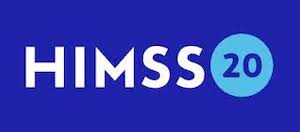 Early this year, I posted a collaborative discussion about the potential applications of Blockchain for healthcare. Ariel Ekblaw from the MIT Media Lab collaborated with Beth Israel Medical Center (BIDMC) to actually implement Blockchain medication reconciliation with deidentified patient data. ONC selected it as a winner of the Blockchain Challenge. The idea is simple. Blockchain was invented to handle financial transactions such as deposits and withdrawls. Medication management is very similar to a bank account. Think of your body as a vault.
Early this year, I posted a collaborative discussion about the potential applications of Blockchain for healthcare. Ariel Ekblaw from the MIT Media Lab collaborated with Beth Israel Medical Center (BIDMC) to actually implement Blockchain medication reconciliation with deidentified patient data. ONC selected it as a winner of the Blockchain Challenge. The idea is simple. Blockchain was invented to handle financial transactions such as deposits and withdrawls. Medication management is very similar to a bank account. Think of your body as a vault.
 The Linux Foundation...today is announcing the Hyperledger Project has filled key leadership positions and is welcoming new members. The Hyperledger Project is a collaborative effort to establish, build and sustain an open, distributed ledger platform that will satisfy a variety of use cases across multiple industries. The results of the Board of Directors and Technical Steering Committee elections for the Hyperledger Project include the following:
The Linux Foundation...today is announcing the Hyperledger Project has filled key leadership positions and is welcoming new members. The Hyperledger Project is a collaborative effort to establish, build and sustain an open, distributed ledger platform that will satisfy a variety of use cases across multiple industries. The results of the Board of Directors and Technical Steering Committee elections for the Hyperledger Project include the following:
 Someone knows you are reading this. They know what device you are using. They know if you make it all the way to the end (which I hope you do!). They may be watching you read it, and listening to you. They know exactly where you are right now, and where you've been. As FBI Director James Comey recently proclaimed, "there is no thing as absolute privacy in America." Director Comey was speaking about legal snooping, authorized by the courts and carried out by law enforcement agencies, but, in many ways, that may be the least of our privacy concerns...
Someone knows you are reading this. They know what device you are using. They know if you make it all the way to the end (which I hope you do!). They may be watching you read it, and listening to you. They know exactly where you are right now, and where you've been. As FBI Director James Comey recently proclaimed, "there is no thing as absolute privacy in America." Director Comey was speaking about legal snooping, authorized by the courts and carried out by law enforcement agencies, but, in many ways, that may be the least of our privacy concerns... HealthTap...today unveiled HealthTap Cloud™, a first-of-its-kind development platform that enables health developers to build applications more efficiently and cost effectively. HealthTap Cloud™ is powered by HOPES™, the world’s first Health Operating System, which connects the entire continuum of care to each person’s unique Personal Health Record (PHR). Application Programming Interfaces (APIs) and Software Development Kits (SDKs) that help developers build highly personalized web, iOS, and Android apps are available with HealthTap Cloud™...
HealthTap...today unveiled HealthTap Cloud™, a first-of-its-kind development platform that enables health developers to build applications more efficiently and cost effectively. HealthTap Cloud™ is powered by HOPES™, the world’s first Health Operating System, which connects the entire continuum of care to each person’s unique Personal Health Record (PHR). Application Programming Interfaces (APIs) and Software Development Kits (SDKs) that help developers build highly personalized web, iOS, and Android apps are available with HealthTap Cloud™... The annual gargantuan HIMSS conference is back at Las Vegas with over 40,000 participants, over a thousand exhibitors, and more than 600 presentations. As we saw last year in Orlando, more than half of the conference presentations are focused on applications based on open source such as FHIR and Blockchain, and a great emphasis on open solutions for interoperability. With so many presentations and exhibits, it is impossible to provide a full overview. Below are a few of some of the most interesting exhibits of open solutions this year.
The annual gargantuan HIMSS conference is back at Las Vegas with over 40,000 participants, over a thousand exhibitors, and more than 600 presentations. As we saw last year in Orlando, more than half of the conference presentations are focused on applications based on open source such as FHIR and Blockchain, and a great emphasis on open solutions for interoperability. With so many presentations and exhibits, it is impossible to provide a full overview. Below are a few of some of the most interesting exhibits of open solutions this year.
 Holochain is a new technology project with huge potential for the cooperative economy. Members of The Open Co-op have been promoting the idea that new software could, potentially, revolutionize both our failing democracies and our predatory capitalist economies, since 2004. Back then we weren’t quite so clear on exactly how the required information architecture should be designed – but we knew what we wanted it to do and how it should work. In 2004, I published a paper entitled Participatory Democracy Networks, which explained how I thought some new information architecture could facilitate participatory democracy worldwide.
Holochain is a new technology project with huge potential for the cooperative economy. Members of The Open Co-op have been promoting the idea that new software could, potentially, revolutionize both our failing democracies and our predatory capitalist economies, since 2004. Back then we weren’t quite so clear on exactly how the required information architecture should be designed – but we knew what we wanted it to do and how it should work. In 2004, I published a paper entitled Participatory Democracy Networks, which explained how I thought some new information architecture could facilitate participatory democracy worldwide.